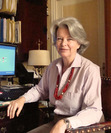Claude Forthomme's Blog, page 25
November 6, 2014
Overfishing, Climate Change and Hunger
Another article of mine published under my real name (Claude Forthomme) on Impakter magazine:

Overfishing, Climate Change and HungerClaude Forthomme on 3 November, 2014 at 11:55 Overfishing, climate change and hunger, a is what you call a “triple whammy”on the planet.
You may wonder what they have in common, but at the United Nations, no one doubts that the three are dramatically inter-linked. The point was forcefully made in a recent report from a “high level panel of experts on food security and nutrition” presented this month to the Committee on World Food Security, a 5-day event held in Rome, focused on hunger and poverty issues.

This is an important event – the first meeting was 41 years ago – and while it started as a slow, closed shop set up by FAO and reserved to government officials, it is now open to a slew of major actors on the humanitarian scene, from big United Nations agencies that sponsor the event, all three UN agencies located in Italy (FAO, the World Food Programme, IFAD) to major donor countries (the Netherlands and Sweden stand out) and top charities operating worldwide, like the Bill and Melinda Gates Foundation and farmers’ organizations. In short, a big deal in the humanitarian world.
And this is not one more boring report. It does many things. It updates what we know about the world fisheries crisis and makes clear for the first time the link between fisheries and human nutrition.Today, capture fisheries and aquaculture provide 3 billion people with almost 20 percent of their average per capita intake of animal protein, and in some countries, this share exceeds 50 percent, for example 54 percent in Indonesia, 71 percent in the Maldives.
So fish consumption is a fact. But with pollution affecting the seas, is high fish consumption detrimental to human health?
Read the rest on Impakter, click here.
 UPDATE ON MY FREE CAMPAIGN for Gateway to Forever , a futuristic thriller. This morning...
UPDATE ON MY FREE CAMPAIGN for Gateway to Forever , a futuristic thriller. This morning...
in Europe (10 am) it was ranked
#19 in Kindle Store > Kindle eBooks > Science Fiction & Fantasy > Science Fiction > Dystopian Still up there, thanks to all my friends for downloading a copy. If you haven't got yours yet, grab it here before the campaign is over!
Be prepared to be scared by our highly plausible future. I've based my book on my own research and a lifetime of meditation about what the future holds for us and our children.
Overfishing and climate change are the tip of a (fast-melting) iceberg...if I may be allowed to mix my metaphors! 200 years from now, how will our descendants handle it? They will be people like you and me, keen to survive, of course, but also committed to our values, everything that makes humankind worth saving. I've been guided by them in my working life, and so are all the protagonists in my book, starting with Alice, of whom I made a painting - here she is in the desert, proud and feisty:











Overfishing, Climate Change and HungerClaude Forthomme on 3 November, 2014 at 11:55 Overfishing, climate change and hunger, a is what you call a “triple whammy”on the planet.
You may wonder what they have in common, but at the United Nations, no one doubts that the three are dramatically inter-linked. The point was forcefully made in a recent report from a “high level panel of experts on food security and nutrition” presented this month to the Committee on World Food Security, a 5-day event held in Rome, focused on hunger and poverty issues.

This is an important event – the first meeting was 41 years ago – and while it started as a slow, closed shop set up by FAO and reserved to government officials, it is now open to a slew of major actors on the humanitarian scene, from big United Nations agencies that sponsor the event, all three UN agencies located in Italy (FAO, the World Food Programme, IFAD) to major donor countries (the Netherlands and Sweden stand out) and top charities operating worldwide, like the Bill and Melinda Gates Foundation and farmers’ organizations. In short, a big deal in the humanitarian world.
And this is not one more boring report. It does many things. It updates what we know about the world fisheries crisis and makes clear for the first time the link between fisheries and human nutrition.Today, capture fisheries and aquaculture provide 3 billion people with almost 20 percent of their average per capita intake of animal protein, and in some countries, this share exceeds 50 percent, for example 54 percent in Indonesia, 71 percent in the Maldives.
So fish consumption is a fact. But with pollution affecting the seas, is high fish consumption detrimental to human health?
Read the rest on Impakter, click here.
 UPDATE ON MY FREE CAMPAIGN for Gateway to Forever , a futuristic thriller. This morning...
UPDATE ON MY FREE CAMPAIGN for Gateway to Forever , a futuristic thriller. This morning... in Europe (10 am) it was ranked
#19 in Kindle Store > Kindle eBooks > Science Fiction & Fantasy > Science Fiction > Dystopian Still up there, thanks to all my friends for downloading a copy. If you haven't got yours yet, grab it here before the campaign is over!
Be prepared to be scared by our highly plausible future. I've based my book on my own research and a lifetime of meditation about what the future holds for us and our children.
Overfishing and climate change are the tip of a (fast-melting) iceberg...if I may be allowed to mix my metaphors! 200 years from now, how will our descendants handle it? They will be people like you and me, keen to survive, of course, but also committed to our values, everything that makes humankind worth saving. I've been guided by them in my working life, and so are all the protagonists in my book, starting with Alice, of whom I made a painting - here she is in the desert, proud and feisty:










Published on November 06, 2014 01:56
November 4, 2014
Speculative Writing: the Next Big Trend in Publishing?
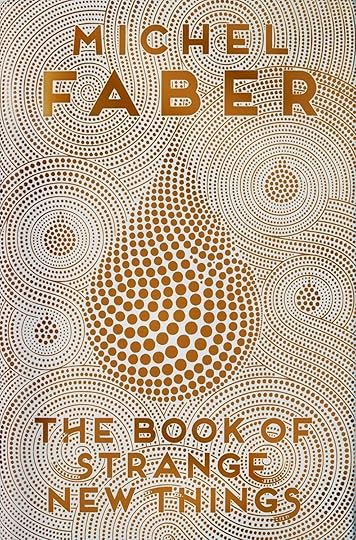 Over the week-end something big happened to our culture. The Book of Strange New Things by Michel Faber was reviewed by Marcel Theroux for the New York Times (see here).
Over the week-end something big happened to our culture. The Book of Strange New Things by Michel Faber was reviewed by Marcel Theroux for the New York Times (see here).So what, you may ask?
First, the reviewer, Marcel Theroux is someone worth listening to. He is a successful broadcaster and author in his own right. The son of American traveler and writer Paul Theroux, he works in television (for example, in 2004, he presented on Channel 4 The End of the World as We Know It, part of the War on Terra television series about climate change). His fifth novel, Strange Bodies , won the the 2014 John W. Campbell Memorial Award. Not unsurprisingly, this is a speculative novel that explores identity and what it means to be truly human.
Two, this is not Michel Faber's first book, but his eighth - he has written in many genres, and his brilliant debut novel, Under the Skin , that also happens to be sci-fi like this latest one, was shortlisted for the Whitbread when it came out (in 2000). Under the Skin inspired a fascinating movie that came out in 2014, directed by Jonathan Glazer and starring Scarlett Johansson. Here's a video clip that highlights how profoundly different this movie is from the usual sci-fi run:
It is basically, a search for identity, and yes, you "don't want to wake up dead!"
Reading Marcel Theroux' s review of The Book of Strange New Things, you can tell he was knocked off his feet. For those who don't like sci-fi, Theroux says, "give it 10 pages, it doesn't start with aliens, it's about a man going on a long journey to a planet light years away and saying good-bye to his beloved wife."
Indeed. Here are the first lines from Chapter 1, Forty Minutes later he was up in the sky:
'I was going to say something,' he said.It is so real, so human! Isn't that just the sort of thing you say to your loved one as you go off on a trip? This sort of fiction is linked to the here and now, as we live it, with our anxieties and doubts, our loves and regrets.
'So say it,' she said.
He was quiet, keeping his eyes on the road. In the darkness of the city's outskirts, there was nothing to see except the tail-lights of other cars in the distance, the endless unfurling roll of tarmac, the giant utilitarian fixtures of the motorway.
'God may be disappointed in me for even thinking it,' he said.
'Well,' she sighed, 'He knows already, so you may as well tell me.'
The key descriptors here are "possible" and "plausible". That very plausibility is what turns this kind of sci-fi thriller into emotion-laden explorations into the human condition. Our Earth is recognizable but it's much worse, battered by climate change and geo-political instability. And in that sense, this book links up with the basic tenets of climate fiction, a rapidly rising genre, ever since Dan Bloom coined the term in 2008 (and he's a vocal part of the debate in that New York Times piece, Room for Debate, published in July 2014).
Theroux in concluding his review of The Book of Strange New Things reveals how he really feels about it and let me quote him:
Since the critical and commercial triumph of Hilary Mantel, the historical novel is newly respectable. One hopes that Michel Faber can do something similar for speculative writing. Defiantly unclassifiable, “The Book of Strange New Things” is, among other things, a rebuke to the credo of literary seriousness for which there is no higher art than a Norwegian man taking pains to describe his breakfast cereal. As well as the literature of authenticity, Faber reminds us, there is a literature of enchantment, which invites the reader to participate in the not-real in order to wake from a dream of reality to the ineffability, strangeness and brevity of life on Earth.
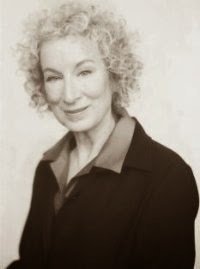 Margaret AtwoodThis amounts to a major recognition of the speculative dimension of science fiction that has been often ignored, as millions of readers have become entranced with Star Wars and Ender's Game. However, the escapist, irrealistic aspect of this kind of sci-fi has also turned off just as many people. Result? Sci-fi has become classified as a commercial "genre": pure entertainment and nothing else.
Margaret AtwoodThis amounts to a major recognition of the speculative dimension of science fiction that has been often ignored, as millions of readers have become entranced with Star Wars and Ender's Game. However, the escapist, irrealistic aspect of this kind of sci-fi has also turned off just as many people. Result? Sci-fi has become classified as a commercial "genre": pure entertainment and nothing else.Will Faber, with his book, help to make sci-fi "respectable", repeating what Hilary Mantel did for the historical novel?
I believe he could, because, in fact, Faber is not alone in doing this. Other major writers are doing it too, in particular Margaret Atwood ( MaddAddam Trilogy , inter alia) and Barbara Kingsolver (Flight Behavior). Of course,both writers are also considered climate fiction authors, but Margaret Atwood for one has always argued that her fiction is "speculative".
In my view, regardless of terminology, this is speculative writing of the highest order - it ties back to the founding masters of the speculative sci-fi genre, George Orwell (1984) and Aldous Huxley (Brave New World) who always started from highly plausible premises. And that's why their books fascinated and scared a whole generation that was feeling under the threat of totalitarian communism.
 Today, we are under the threat of global warming with big corporations that won't do anything about it (because they profit from fossil fuels); we witness increasing geopolitical chaos, especially in the Middle East but other places too as Islamic Jihad spreads; we watch helplessly as income inequality takes hold everywhere, including in places like the United States, where chances for the young to "make it" are growing slimmer by the day unless they were born into "big money".
Today, we are under the threat of global warming with big corporations that won't do anything about it (because they profit from fossil fuels); we witness increasing geopolitical chaos, especially in the Middle East but other places too as Islamic Jihad spreads; we watch helplessly as income inequality takes hold everywhere, including in places like the United States, where chances for the young to "make it" are growing slimmer by the day unless they were born into "big money". Speculative authors (like myself) take this world of ours as the starting point for our fiction. And we try to look into the future to figure out what awaits us and our children.
Given current trends, where are we going?
Such questions need to be asked. And as our world continues to unravel, they will become evermore urgent.
That is why speculative fiction is going to be the Next Big Trend in Publishing.
Just one sad last note: Michel Faber has told the press (see here) that he won't write another novel, he's been shaken by the loss of his wife Eva who died of cancer as he was putting the last touches to The Book of Strange New Things. I sincerely hope he will change his mind, it would be a terrible loss to literature.
Post Scriptum: If you're curious about this kind of fiction, my own speculative novel (just published) is free for 5 days, starting today November 4, don't miss the chance, I'm not going to do it again! Click here to grab your copy before it's over.

We mortals dream of immortality. What if there was another option? The power of money could make the difference. A few win, the great majority loses, but humanity is saved, or is it?
Excerpt from reviews:
- A prophetic view of our future. Compelling from start to finish (Lit Amri)
- A cast of characters that range from fascinating to despicable (Marsha Roberts)
- A very plausible future, scarily plausible (Bob Rector)Published May 31, 2014. 326 pages.









Published on November 04, 2014 01:11
October 31, 2014
Women Make the Difference Everywhere
Here's another article just published on Impakter under my real name, Claude Forthomme - memories of the days when I worked at the United Nations, traveling to developing countries, to inspect and evaluate aid projects, trying to sort out problems:

Diary of a UN Official #3: When Women Make the DifferenceClaude Forthomme
Guinea-Bissau, October 1990, I don’t remember which day. But I remember how it was that morning when I woke up. Hot, very hot, the way it is in the tropics, damp and cloying, with a low sky of dark clouds, like a lid. I got out of my room, with just a bathrobe on, and ran to the nearest mango tree – the hotel I was staying at was very simple, just a handful of bungalows of two rooms each, set in a large, unkempt garden, no flowers, a lot of mud. But so many mangoes, greenish yellow, with a juicy, golden flesh, the perfect breakfast. I went into the bathroom to carve out my mango with a multi-bladed Swiss knife I always carried with me (back then you could taken them aboard planes). The sweet juice dripped all over the sink. I reflected how in Bissau, there are mango trees everywhere, heavy with fruit; all one has to do is look up and grab one, they’re free – a little like living in paradise.
 But Guinea-Bissau back then (and even today) is no paradise. It is one of the poorest countries on earth, more than two thirds of the population lives below the poverty line on less than two dollars a day. If Guinea-Bissau threatens these days to become a narco-state, this is no surprise. Guess what, even when I was there, most people, some 80 percent, earned whatever living they could scrape from agriculture, mostly rice (to feed their families) and cashew and ground nuts (for export).
But Guinea-Bissau back then (and even today) is no paradise. It is one of the poorest countries on earth, more than two thirds of the population lives below the poverty line on less than two dollars a day. If Guinea-Bissau threatens these days to become a narco-state, this is no surprise. Guess what, even when I was there, most people, some 80 percent, earned whatever living they could scrape from agriculture, mostly rice (to feed their families) and cashew and ground nuts (for export).
 I knew all about this, before coming, I had done my “due diligence” to prepare myself for my evaluation mission. The project was ending, the question I had to answer was, should it continue. I had read about the country’s problems after it became independent from Portugal, how the Portuguese Colonial War had led to a rapid exodus of the Portuguese civilian and military authorities, and like any war, had wrought considerable damage to the country’s economic and social infrastructure. With continuing political instability, the standard of living had collapsed and while Guinea Bissau had been a net exporter of rice in colonial times, now it was a net importer. And for years there had been no vegetables or fruit (except for mangoes) in the capital – a small town of some 150,000 people (more than double that number today). That had changed with the project I was meant to evaluate. A horticulture project, started a couple of years before, it was meant to provide the town with vegetables. It was a very small project, less than one hundred thousand dollars of expenses in two years. Peanuts. Compared to the big problems the country faced, what was the point of it? How could it help? Was another extension really needed? But I was beginning to revise my opinion.
I knew all about this, before coming, I had done my “due diligence” to prepare myself for my evaluation mission. The project was ending, the question I had to answer was, should it continue. I had read about the country’s problems after it became independent from Portugal, how the Portuguese Colonial War had led to a rapid exodus of the Portuguese civilian and military authorities, and like any war, had wrought considerable damage to the country’s economic and social infrastructure. With continuing political instability, the standard of living had collapsed and while Guinea Bissau had been a net exporter of rice in colonial times, now it was a net importer. And for years there had been no vegetables or fruit (except for mangoes) in the capital – a small town of some 150,000 people (more than double that number today). That had changed with the project I was meant to evaluate. A horticulture project, started a couple of years before, it was meant to provide the town with vegetables. It was a very small project, less than one hundred thousand dollars of expenses in two years. Peanuts. Compared to the big problems the country faced, what was the point of it? How could it help? Was another extension really needed? But I was beginning to revise my opinion.
For the rest, link to Impakter. Expect a very surprising end to that story!










Diary of a UN Official #3: When Women Make the DifferenceClaude Forthomme
Guinea-Bissau, October 1990, I don’t remember which day. But I remember how it was that morning when I woke up. Hot, very hot, the way it is in the tropics, damp and cloying, with a low sky of dark clouds, like a lid. I got out of my room, with just a bathrobe on, and ran to the nearest mango tree – the hotel I was staying at was very simple, just a handful of bungalows of two rooms each, set in a large, unkempt garden, no flowers, a lot of mud. But so many mangoes, greenish yellow, with a juicy, golden flesh, the perfect breakfast. I went into the bathroom to carve out my mango with a multi-bladed Swiss knife I always carried with me (back then you could taken them aboard planes). The sweet juice dripped all over the sink. I reflected how in Bissau, there are mango trees everywhere, heavy with fruit; all one has to do is look up and grab one, they’re free – a little like living in paradise.
 But Guinea-Bissau back then (and even today) is no paradise. It is one of the poorest countries on earth, more than two thirds of the population lives below the poverty line on less than two dollars a day. If Guinea-Bissau threatens these days to become a narco-state, this is no surprise. Guess what, even when I was there, most people, some 80 percent, earned whatever living they could scrape from agriculture, mostly rice (to feed their families) and cashew and ground nuts (for export).
But Guinea-Bissau back then (and even today) is no paradise. It is one of the poorest countries on earth, more than two thirds of the population lives below the poverty line on less than two dollars a day. If Guinea-Bissau threatens these days to become a narco-state, this is no surprise. Guess what, even when I was there, most people, some 80 percent, earned whatever living they could scrape from agriculture, mostly rice (to feed their families) and cashew and ground nuts (for export). I knew all about this, before coming, I had done my “due diligence” to prepare myself for my evaluation mission. The project was ending, the question I had to answer was, should it continue. I had read about the country’s problems after it became independent from Portugal, how the Portuguese Colonial War had led to a rapid exodus of the Portuguese civilian and military authorities, and like any war, had wrought considerable damage to the country’s economic and social infrastructure. With continuing political instability, the standard of living had collapsed and while Guinea Bissau had been a net exporter of rice in colonial times, now it was a net importer. And for years there had been no vegetables or fruit (except for mangoes) in the capital – a small town of some 150,000 people (more than double that number today). That had changed with the project I was meant to evaluate. A horticulture project, started a couple of years before, it was meant to provide the town with vegetables. It was a very small project, less than one hundred thousand dollars of expenses in two years. Peanuts. Compared to the big problems the country faced, what was the point of it? How could it help? Was another extension really needed? But I was beginning to revise my opinion.
I knew all about this, before coming, I had done my “due diligence” to prepare myself for my evaluation mission. The project was ending, the question I had to answer was, should it continue. I had read about the country’s problems after it became independent from Portugal, how the Portuguese Colonial War had led to a rapid exodus of the Portuguese civilian and military authorities, and like any war, had wrought considerable damage to the country’s economic and social infrastructure. With continuing political instability, the standard of living had collapsed and while Guinea Bissau had been a net exporter of rice in colonial times, now it was a net importer. And for years there had been no vegetables or fruit (except for mangoes) in the capital – a small town of some 150,000 people (more than double that number today). That had changed with the project I was meant to evaluate. A horticulture project, started a couple of years before, it was meant to provide the town with vegetables. It was a very small project, less than one hundred thousand dollars of expenses in two years. Peanuts. Compared to the big problems the country faced, what was the point of it? How could it help? Was another extension really needed? But I was beginning to revise my opinion.For the rest, link to Impakter. Expect a very surprising end to that story!









Published on October 31, 2014 00:39
October 28, 2014
Lesson Learned: A Good Editor is a Windfall
Editing is every writer's nightmare. Thomas J. Watson is supposed to have said, "If you want to succeed, double your failure rate".

Mmmm, maybe it works for a scientist but I'm not sure it works for a writer. Failure is terrifying, it's like walking naked around Grand Central Station.
For a writer, there is nothing better, nothing more exciting than finding a good editor - like an alter ego, this is someone who understands fully what you're trying to do, but she has her head on her shoulders while yours is in the clouds.
This is what happened to me when I met Hannah Fischer Lauder. She is someone special, an avid reader, an anthropologist who has written not only many scientific reports, including case studies of specific individuals she met in the course of her field work (they read like novels!), she has also published articles in the more general press, like those you can find on Impakter (for example, here and here). Yes, she's a bit of a fighter - someone who can't stand social injustice.
And (miracle!), she read my book Forever Young, loved it but told me that I had made a serious mistake in trying to serialize the novel.
On this one, I knew she was right. I've learned the hard way that serializing your novel does not work unless you have the right support for it.
A good lesson, no doubt, and I'm happy to share it with you so that you don't repeat that mistake. To make it work, you need a zillion followers on social media (take your pick, Facebook, Twitter, Instagram, Pinterest or better yet, all four).
Barring that (my case), you need to upload the parts of your serialized novel on some website that will act as a draw, something like the Kindle Serials:

But Hannah didn't stop there. She didn't like the title either, pointing out that everybody and my uncle had used it. Actually, not my uncle, but Bob Dylan's famous song, that has even become the theme of an ebook:
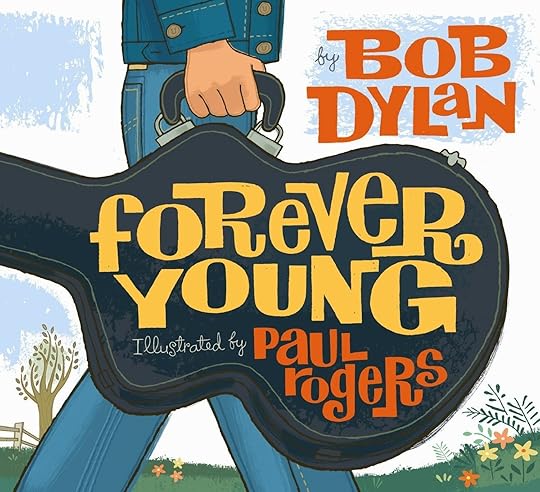
Finally she said, not content with all her previous devastating comments, the opening was no good. Too long. Didn't grab you.
I was crushed but I could see she had a point. Long ago (back in 2012) I had written a piece of flash fiction called "I will not leave you behind". It was good and short and everybody loved it, maybe because of that - I mean, because it was really short. And punchy.
So instead of grasping what made it "work", I took it and turned it into a 20,000 words novella. Hum. It had certainly lost its punch. But I ignored the problem and continued, adding on a series of episodes - and that's how my serialized novel was born.
No good, she said. You have to think of it as a novel, not as a patchwork of episodes.
Sigh. Back to the drawing board. Thank God, she did most of the work, et voilà, a spruced up, totally new book was born on the ashes of Forever Young, like the proverbial phoenix.
The next task? I tore down every episode of Forever Young on Amazon (I mean I unpublished them) and uploaded instead my new Gateway to Forever. Okay, it's the same plot (if you read the previous version, don't read it again!) but it's much, much better.
I'm very proud of it now, thank you Hannah!
I even went back to Wattpad where I had uploaded the original version and tore it down there too. Now, if you go to Wattpad (and do go, everybody's on Wattpad, unknown authors and big ones, like Paolo Coelho who used Wattpad to launch his latest novel, Adultery), this is what you find:

Okay, that's still very few reads, I had just uploaded it when I took the screenshot, the result of the first hour...And, yes, I regret that there are no comments or any "likes" yet. If you feel you want to say something or add a like, I'd be most grateful, click here to reach the site, I'd love to hear from you!
Now I stop, I'm not trying to plug my book, just explaining where I stand and why I uploaded a new version with a new title and cover. Thanks for bearing with me!
...And don't serialize your novel unless Kindle Serials has agreed to take you on. Believe me, that's good advice.










Mmmm, maybe it works for a scientist but I'm not sure it works for a writer. Failure is terrifying, it's like walking naked around Grand Central Station.
For a writer, there is nothing better, nothing more exciting than finding a good editor - like an alter ego, this is someone who understands fully what you're trying to do, but she has her head on her shoulders while yours is in the clouds.
This is what happened to me when I met Hannah Fischer Lauder. She is someone special, an avid reader, an anthropologist who has written not only many scientific reports, including case studies of specific individuals she met in the course of her field work (they read like novels!), she has also published articles in the more general press, like those you can find on Impakter (for example, here and here). Yes, she's a bit of a fighter - someone who can't stand social injustice.
And (miracle!), she read my book Forever Young, loved it but told me that I had made a serious mistake in trying to serialize the novel.
On this one, I knew she was right. I've learned the hard way that serializing your novel does not work unless you have the right support for it.
A good lesson, no doubt, and I'm happy to share it with you so that you don't repeat that mistake. To make it work, you need a zillion followers on social media (take your pick, Facebook, Twitter, Instagram, Pinterest or better yet, all four).
Barring that (my case), you need to upload the parts of your serialized novel on some website that will act as a draw, something like the Kindle Serials:

But Hannah didn't stop there. She didn't like the title either, pointing out that everybody and my uncle had used it. Actually, not my uncle, but Bob Dylan's famous song, that has even become the theme of an ebook:

Finally she said, not content with all her previous devastating comments, the opening was no good. Too long. Didn't grab you.
I was crushed but I could see she had a point. Long ago (back in 2012) I had written a piece of flash fiction called "I will not leave you behind". It was good and short and everybody loved it, maybe because of that - I mean, because it was really short. And punchy.
So instead of grasping what made it "work", I took it and turned it into a 20,000 words novella. Hum. It had certainly lost its punch. But I ignored the problem and continued, adding on a series of episodes - and that's how my serialized novel was born.
No good, she said. You have to think of it as a novel, not as a patchwork of episodes.
Sigh. Back to the drawing board. Thank God, she did most of the work, et voilà, a spruced up, totally new book was born on the ashes of Forever Young, like the proverbial phoenix.
The next task? I tore down every episode of Forever Young on Amazon (I mean I unpublished them) and uploaded instead my new Gateway to Forever. Okay, it's the same plot (if you read the previous version, don't read it again!) but it's much, much better.
I'm very proud of it now, thank you Hannah!
I even went back to Wattpad where I had uploaded the original version and tore it down there too. Now, if you go to Wattpad (and do go, everybody's on Wattpad, unknown authors and big ones, like Paolo Coelho who used Wattpad to launch his latest novel, Adultery), this is what you find:

Okay, that's still very few reads, I had just uploaded it when I took the screenshot, the result of the first hour...And, yes, I regret that there are no comments or any "likes" yet. If you feel you want to say something or add a like, I'd be most grateful, click here to reach the site, I'd love to hear from you!
Now I stop, I'm not trying to plug my book, just explaining where I stand and why I uploaded a new version with a new title and cover. Thanks for bearing with me!
...And don't serialize your novel unless Kindle Serials has agreed to take you on. Believe me, that's good advice.









Published on October 28, 2014 13:22
October 26, 2014
Startup for the Brave New Age of Digital Publishing
Here’s another one of my articles published on Impakter – under my real name, Claude Forthomme. Find out about a neat new publishing services website where you can find all you need (if you’re a self-published writer). I interviewed one of the two founders, Richard Fayet:
Reedsy – The Founder
 Claude Forthomme on 22 October, 2014
Claude Forthomme on 22 October, 2014
Reedsy is a startup aimed at the publishing industry. At the Women’s Fiction Festival, a writers’ conference held in Matera, Italy, I met Ricardo Fayet, Reedsy’s Chief Operating Officer and had a chance to chat with him. The website is still in beta version, here is the landing page: www.reedsy.com. Blog Post Image Note the lovely design with soft colors, attractive and friendly.
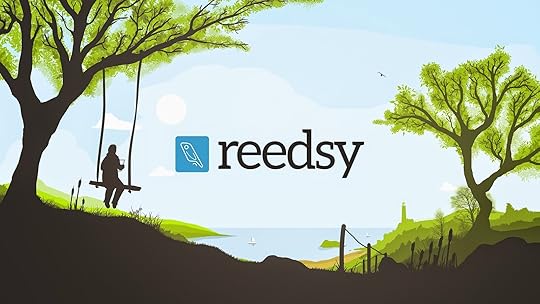
You can open an account as a writer or as a “freelancer” or both. A freelancer is someone providing services as copy or development editor, book cover designer, illustrator etc. Even though this is still in beta version, the list is already quite long, over 100 names, and most are obviously affirmed, experienced professionals. One can filter by genre, which is very useful for a writer looking for help to finalize a particular book in a particular genre. Considering Reedsy is still in a beta phase, this is a remarkable achievement. Of course there are still some bugs and that’s normal, it’s early day. For example, the feature to enable writers to look for more specific professional help is not yet activated, but it soon will be.
Question: Richard, I just joined your site and navigated it a bit. In a few words, can you tell us what Reedsy is about, what is its role in publishing?
Answer: Reedsy is the future’s publishing house. We support independent authors in publishing their own work. We want those authors to earn a living wage from their books. We want to help them publish their best work by connecting them with the best freelancers in the publishing industry, and by giving them the best tools to work with. And, one day, we want to do this all over the world.
Q: So you are aiming directly at supporting self-publishing that, according to some professionals in the industry, will soon become a larger market than traditional publishing. One famous UK literary agent even foresaw that in five years 75% of all books would be self-published. Why is something like Reedsy needed?
You wouldn’t have needed a service like Reedsy ten years ago when there were just a handful of publishers – editors and designers looking for work knew where to go. Now, in a post-Kindle world, we want to make sure the best freelancers are aware of all the independent authors who want to work with them, and that those authors know which freelancers they want to work with and which ones they want to avoid.
The rest on Impakter, click here









Reedsy – The Founder
 Claude Forthomme on 22 October, 2014
Claude Forthomme on 22 October, 2014 Reedsy is a startup aimed at the publishing industry. At the Women’s Fiction Festival, a writers’ conference held in Matera, Italy, I met Ricardo Fayet, Reedsy’s Chief Operating Officer and had a chance to chat with him. The website is still in beta version, here is the landing page: www.reedsy.com. Blog Post Image Note the lovely design with soft colors, attractive and friendly.

You can open an account as a writer or as a “freelancer” or both. A freelancer is someone providing services as copy or development editor, book cover designer, illustrator etc. Even though this is still in beta version, the list is already quite long, over 100 names, and most are obviously affirmed, experienced professionals. One can filter by genre, which is very useful for a writer looking for help to finalize a particular book in a particular genre. Considering Reedsy is still in a beta phase, this is a remarkable achievement. Of course there are still some bugs and that’s normal, it’s early day. For example, the feature to enable writers to look for more specific professional help is not yet activated, but it soon will be.
Question: Richard, I just joined your site and navigated it a bit. In a few words, can you tell us what Reedsy is about, what is its role in publishing?
Answer: Reedsy is the future’s publishing house. We support independent authors in publishing their own work. We want those authors to earn a living wage from their books. We want to help them publish their best work by connecting them with the best freelancers in the publishing industry, and by giving them the best tools to work with. And, one day, we want to do this all over the world.
Q: So you are aiming directly at supporting self-publishing that, according to some professionals in the industry, will soon become a larger market than traditional publishing. One famous UK literary agent even foresaw that in five years 75% of all books would be self-published. Why is something like Reedsy needed?
You wouldn’t have needed a service like Reedsy ten years ago when there were just a handful of publishers – editors and designers looking for work knew where to go. Now, in a post-Kindle world, we want to make sure the best freelancers are aware of all the independent authors who want to work with them, and that those authors know which freelancers they want to work with and which ones they want to avoid.
The rest on Impakter, click here









Published on October 26, 2014 11:54
October 21, 2014
Self-Publishing and Women's Fiction, Hot Topics in International Writer's Conference in Italy
As my friends in Rome know, I left town on September 24 to attend a very special writer's conference held in the South of Italy, in beautiful Matera - now just nominated European Culture Capital for 2019.
Self-publishing was amply discussed and we had several self-published stars, including Bella André and Tina Folsom, major editors from big US and Italian publishing houses, publishing gurus like Jane Friedman and David Gaughran, and literary agents from the US, UK and Italy. Here's the article I wrote about it for Publishing Perspectives, just published today:
Italian Writing Festival Takes Women, Self-Publishing SeriouslyRead more by Guest Contributor
October 21, 2014
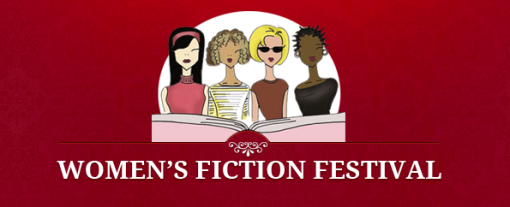
By Claude Nougat
After eleven years of uninterrupted success, the Women’s Fiction Festival in Matera – four days at the end of September, it closed on the 28th – has proven once again that it is unique in Europe. It combines the best of American writers’ conferences and Italian literary events, drawing together the business side of publishing —literary agents, editors, translators and publishing gurus — with the creative side, both established writers and newbies, coming from Europe and America. And it manages to do this without turning into a mega, unmanageable event.
This year it was sold out. But it meant that only about one hundred lucky few made it, and for aspiring writers, it was a perfect occasion to pitch their work at agents and editors coming from the US, the UK and of course Italy.
Small size is just one of the keys of the Festival’s success. The other is Matera itself, a UNESCO World Heritage site in Southern Italy, famous for its “sassi,” hundreds of cave dwellings. Some have even been turned into charming hotels though the “modern” town with its baroque churches and palaces may prove more comfortable to the less adventurous. The Festival is held in a highly suggestive environment, “Le Monacelle”, an ex-convent dating to the 16th century and restored in 2000. And that is surely yet another reason for success. The convent’s numerous reception rooms are all open to Festival participants, including a cloistered patio and a vast terrace with a fantastic view over the old town. A magic place! So much so that it has just been named by the European Commission to be “Europe’s Cultural Capital” in 2019, beating all sorts of other rival Italian towns, including Lecce and Perugia.
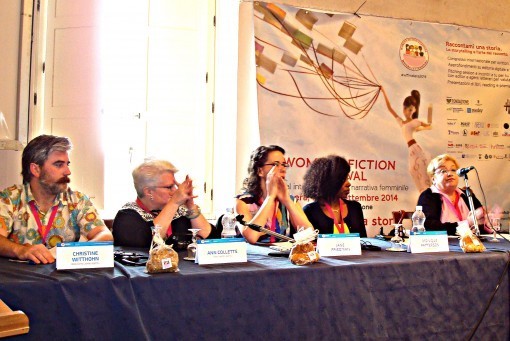
From left, David Gaughran, Ann Colette, Jane Friedman, Monique Patterson of St Martin’s Press, Elizabeth Jennings A Festival Born out of FriendshipWhat however makes the difference is the original “business model” followed by the Festival. First conceived as a writers’ retreat, it quickly morphed into a sui generis conference. It all began with a “telephonic friendship” between author Elizabeth Jennings who lived in Matera and Maria Paola Romeo who was then editorial director at Harlequin Mondadori in Milan. As Elizabeth Jennings explains it, they were “chatting and talking about establishing a writer’s retreat in Matera, which is quite beautiful and quite conducive to writing.” But in so doing, they both brought their experience and contacts to bear with the result that Matera turned into a special meeting place for the literati on both sides of the Atlantic, something truly unique.
Elizabeth Jennings is a successful romantic suspense author who constantly travels to the US, attending major writers’ conferences. Maria Paola Romeo has moved on from Mondadori and has become one of the most successful literary agents in Italy and now founder of a fast-growing digital publishing house Emma Books focused on women’s literature in both English and Italian.
The rest on Publishing Perspectives, click here.









Self-publishing was amply discussed and we had several self-published stars, including Bella André and Tina Folsom, major editors from big US and Italian publishing houses, publishing gurus like Jane Friedman and David Gaughran, and literary agents from the US, UK and Italy. Here's the article I wrote about it for Publishing Perspectives, just published today:
Italian Writing Festival Takes Women, Self-Publishing SeriouslyRead more by Guest Contributor
October 21, 2014

By Claude Nougat
After eleven years of uninterrupted success, the Women’s Fiction Festival in Matera – four days at the end of September, it closed on the 28th – has proven once again that it is unique in Europe. It combines the best of American writers’ conferences and Italian literary events, drawing together the business side of publishing —literary agents, editors, translators and publishing gurus — with the creative side, both established writers and newbies, coming from Europe and America. And it manages to do this without turning into a mega, unmanageable event.
This year it was sold out. But it meant that only about one hundred lucky few made it, and for aspiring writers, it was a perfect occasion to pitch their work at agents and editors coming from the US, the UK and of course Italy.
Small size is just one of the keys of the Festival’s success. The other is Matera itself, a UNESCO World Heritage site in Southern Italy, famous for its “sassi,” hundreds of cave dwellings. Some have even been turned into charming hotels though the “modern” town with its baroque churches and palaces may prove more comfortable to the less adventurous. The Festival is held in a highly suggestive environment, “Le Monacelle”, an ex-convent dating to the 16th century and restored in 2000. And that is surely yet another reason for success. The convent’s numerous reception rooms are all open to Festival participants, including a cloistered patio and a vast terrace with a fantastic view over the old town. A magic place! So much so that it has just been named by the European Commission to be “Europe’s Cultural Capital” in 2019, beating all sorts of other rival Italian towns, including Lecce and Perugia.

From left, David Gaughran, Ann Colette, Jane Friedman, Monique Patterson of St Martin’s Press, Elizabeth Jennings A Festival Born out of FriendshipWhat however makes the difference is the original “business model” followed by the Festival. First conceived as a writers’ retreat, it quickly morphed into a sui generis conference. It all began with a “telephonic friendship” between author Elizabeth Jennings who lived in Matera and Maria Paola Romeo who was then editorial director at Harlequin Mondadori in Milan. As Elizabeth Jennings explains it, they were “chatting and talking about establishing a writer’s retreat in Matera, which is quite beautiful and quite conducive to writing.” But in so doing, they both brought their experience and contacts to bear with the result that Matera turned into a special meeting place for the literati on both sides of the Atlantic, something truly unique.
Elizabeth Jennings is a successful romantic suspense author who constantly travels to the US, attending major writers’ conferences. Maria Paola Romeo has moved on from Mondadori and has become one of the most successful literary agents in Italy and now founder of a fast-growing digital publishing house Emma Books focused on women’s literature in both English and Italian.
The rest on Publishing Perspectives, click here.









Published on October 21, 2014 10:57
October 15, 2014
World Food Day: The Big Fight and Why You Should Join it!
This article in on Impakter (as usual, under my real name Claude Forthomme, the one I'm known by in the United Nations) with some great visuals, don't miss it, see here.
Another United Nations World Day? How boring! But this one isn't. This one, in spite of its bland name - World Food Day - is not about cooking for foodies, masterchef techniques and filling yourself up. On the contrary, it's about fighting hunger.

Fighting hunger has become the Number One objective of the United Nations: Ban Ki Moon, the United Nations Secretary General, gives top priority to the elimination of hunger and has launched the Zero Hunger Challenge, calling on all partners, states and non-state actors, to scale up their effort and " turn the vision of an end to hunger into reality ".
A key part of this effort is World Food Day.
Celebrated every year since FAO was created (16 October), it focuses every year on a different aspect of the fight against hunger. For 2014, the theme is "family farming, feeding the world, caring for the earth". In developed countries we think of farming as an industrial endeavour. But that's not the case in the rest of the world. 98% of farms in the world are family farms - some 500 million farms and they feed most of the world...but not enough. FAO estimates there are 805 hungry people in the world, some 800 of them in developing countries. Compared to the 1990s, that's an improvement (it used to be over one billion) but much, much more needs to be done. And much of the planet's resources needed to do this are at risk, from soil degradation and urban sprawl to overfishing.
Yet family farming if it was allowed to function better could deliver the needed food. What is required is well-known and can be summed up in 4 points...Wonder about those 4 points? Read the rest on Impakter, here.
On October 16 - tomorrow - take time to learn more about what farmers do and why they are essential to achieving Zero Hunger, and see if there's something you can do too. All the info on Impakter.









Another United Nations World Day? How boring! But this one isn't. This one, in spite of its bland name - World Food Day - is not about cooking for foodies, masterchef techniques and filling yourself up. On the contrary, it's about fighting hunger.

Fighting hunger has become the Number One objective of the United Nations: Ban Ki Moon, the United Nations Secretary General, gives top priority to the elimination of hunger and has launched the Zero Hunger Challenge, calling on all partners, states and non-state actors, to scale up their effort and " turn the vision of an end to hunger into reality ".
A key part of this effort is World Food Day.
Celebrated every year since FAO was created (16 October), it focuses every year on a different aspect of the fight against hunger. For 2014, the theme is "family farming, feeding the world, caring for the earth". In developed countries we think of farming as an industrial endeavour. But that's not the case in the rest of the world. 98% of farms in the world are family farms - some 500 million farms and they feed most of the world...but not enough. FAO estimates there are 805 hungry people in the world, some 800 of them in developing countries. Compared to the 1990s, that's an improvement (it used to be over one billion) but much, much more needs to be done. And much of the planet's resources needed to do this are at risk, from soil degradation and urban sprawl to overfishing.
Yet family farming if it was allowed to function better could deliver the needed food. What is required is well-known and can be summed up in 4 points...Wonder about those 4 points? Read the rest on Impakter, here.
On October 16 - tomorrow - take time to learn more about what farmers do and why they are essential to achieving Zero Hunger, and see if there's something you can do too. All the info on Impakter.









Published on October 15, 2014 12:16
October 12, 2014
How Good is Patrick Modiano, the New Nobel in Literature?
The Nobel jury seems to be able to discover new writers you've never heard of, coming from countries that have a literature you have never read, like China, Egypt or Turkey and everytime, it's a real pleasure to discover something totally new. So when the Nobel this year went to a Frenchman I had never read - and I do read regularly French literature - I was totally floored and rushed to buy one of his books. In French, of course.
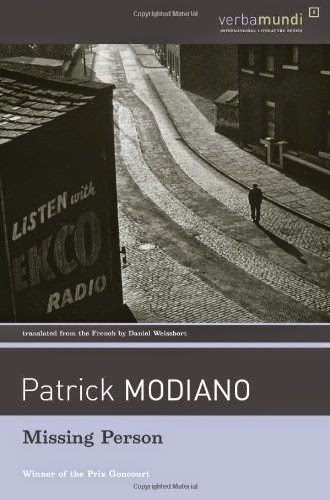 I got "Rue des Boutiques Obscures" because I thought it was a take on the Rome address of the old Italian Communist Party (now PD, Partito Democratico). As everyone in Italy knows, it's "via delle botteghe scure". But no, this book has nothing to do with the Communist Party or any party for that matter.
I got "Rue des Boutiques Obscures" because I thought it was a take on the Rome address of the old Italian Communist Party (now PD, Partito Democratico). As everyone in Italy knows, it's "via delle botteghe scure". But no, this book has nothing to do with the Communist Party or any party for that matter.
Patrick Modiano is not interested in politics, he's into the past, and a particular past at that, all the dark years around and during World War II, and most of his stories are set in Paris. In short, a very local, circumscribed author.
Yet, in spite of that, the themes he predilects are universal, they focus on the question of identity and self. This book, which came out in 1978, the year he won the prestigious Prix Goncourt, was quickly translated into English by Daniel Weissbort, under the title "Missing Person" - actually one of the few books he wrote that got translated. It is published in the United States by a small indie press owned by David R. Godine and of course it is available on Amazon (see here). That's where I got it - but I was able to find the Kindle version of the French original, to pass onto my 100 year-old mother who still reads a novel per week on her Kindle; incidentally, she was very happy to get it, she likes to keep abreast of the latest literary news...This said, I'm a little surprised that Amazon, ever so efficient, hasn't got a digital version of the English translation all ready for the American public. Quite clearly, both Mr. Godine and Amazon were taken by surprise by the Nobel jury!
He wrote some 20 books in a career that spanned nearly 45 years (he was born in 1945). As I am now writing this blog post, I just learned from an article in the Washington Post (here), that "Missing Person" is the book Peter Englund, a historian and the permanent secretary of the Swedish Academy, recommends to readers unfamiliar with Patrick Modiano. “It’s a fun book,” Englund said. “He’s playing with the genre.”
And the genre he is playing with is mysteries. A detective, suffering from amnesia, sets out to recover his identity, following a variety of strange leads. As described on the Godine site:
I'd like to recall here a very astute comment made sometime back by Anne Korkokeakivi, writing for THE MILLIONS, where she noted that French novels tend to be "... dark, searching, philosophical, autobiographical, self-reflective, and/or poetic (without being overwritten)." Patrick Modiano's "Missing Person" precisely fits this description. It is all these things, dark, searching, self-reflective and yes, poetic.
Consider the first lines: "I am nothing. Nothing but a pale shape, silhouetted that evening against the café terrace, waiting for the rain to stop; the shower had started when Hutte left me."
Amazing, isn't it? The opening sentence is just three words, but how they resound. I am nothing. That is of course the whole theme of the book. What comes next is a poetic evocation of someone barely there, uncertainly watching the rain. And the last part of the sentence immediately makes you want to know who is this Hutte - someone with a strange name if there ever was one.
Yes, that is how a master storyteller starts a novel, and I guarantee that you will be turning the pages as fast as you can. And you will be wondering as the main character follows clues that turn out to be non-clues, and you will find yourself perplexed as he attempts to start conversations with people who take him for...who? Really him or someone else? This is done very subtly, especially at the level of dialogues, the kind one carries on with people one barely knows. But can one ever really know the other and oneself? So yes, the book is presented as a mystery, but the mystery is the main character...
And to answer my own question: How good is Patrick Modiano? Very good, five stars, I highly recommend it. And I think you'll be happily surprised what a short read it is too, featherweight, a little over 200 pages. A small perfection...
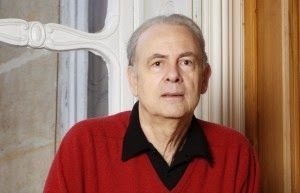 Patrick Modiano
Patrick Modiano









 I got "Rue des Boutiques Obscures" because I thought it was a take on the Rome address of the old Italian Communist Party (now PD, Partito Democratico). As everyone in Italy knows, it's "via delle botteghe scure". But no, this book has nothing to do with the Communist Party or any party for that matter.
I got "Rue des Boutiques Obscures" because I thought it was a take on the Rome address of the old Italian Communist Party (now PD, Partito Democratico). As everyone in Italy knows, it's "via delle botteghe scure". But no, this book has nothing to do with the Communist Party or any party for that matter. Patrick Modiano is not interested in politics, he's into the past, and a particular past at that, all the dark years around and during World War II, and most of his stories are set in Paris. In short, a very local, circumscribed author.
Yet, in spite of that, the themes he predilects are universal, they focus on the question of identity and self. This book, which came out in 1978, the year he won the prestigious Prix Goncourt, was quickly translated into English by Daniel Weissbort, under the title "Missing Person" - actually one of the few books he wrote that got translated. It is published in the United States by a small indie press owned by David R. Godine and of course it is available on Amazon (see here). That's where I got it - but I was able to find the Kindle version of the French original, to pass onto my 100 year-old mother who still reads a novel per week on her Kindle; incidentally, she was very happy to get it, she likes to keep abreast of the latest literary news...This said, I'm a little surprised that Amazon, ever so efficient, hasn't got a digital version of the English translation all ready for the American public. Quite clearly, both Mr. Godine and Amazon were taken by surprise by the Nobel jury!
He wrote some 20 books in a career that spanned nearly 45 years (he was born in 1945). As I am now writing this blog post, I just learned from an article in the Washington Post (here), that "Missing Person" is the book Peter Englund, a historian and the permanent secretary of the Swedish Academy, recommends to readers unfamiliar with Patrick Modiano. “It’s a fun book,” Englund said. “He’s playing with the genre.”
And the genre he is playing with is mysteries. A detective, suffering from amnesia, sets out to recover his identity, following a variety of strange leads. As described on the Godine site:
In this strange, elegant novel, winner of France's premier literary prize, Patrick Modiano portrays a man in pursuit of the identity he lost in the murky days of the Paris Occupation, the black hole of French memory.
For ten years Guy Roland has lived without a past. His current life and name were given to him by his recently retired boss, Hutte, who welcomed him, a onetime client, into his detective agency. Guy makes full use of Hutte's files – directories, yearbooks, and papers of all kinds going back half a century – but his leads are few. Could he really be the person in that photograph, a young man remembered by some as a South American attaché? Or was he someone else, perhaps the disappeared scion of a prominent local family? He interviews strangers and is tantalized by half-clues until, at last, he grasps a thread that leads him through the maze of his own repressed experience.
On one level Missing Person is a detective thriller, a 1950s film noir mix of smoky cafés, illegal passports, and insubstantial figures crossing bridges in the fog. On another level, it is also a haunting meditation on the nature of the self. Modiano's sparce, hypnotic prose, superbly translated by Daniel Weissbort, draws his readers into the intoxication of a rare literary experience.
I'd like to recall here a very astute comment made sometime back by Anne Korkokeakivi, writing for THE MILLIONS, where she noted that French novels tend to be "... dark, searching, philosophical, autobiographical, self-reflective, and/or poetic (without being overwritten)." Patrick Modiano's "Missing Person" precisely fits this description. It is all these things, dark, searching, self-reflective and yes, poetic.
Consider the first lines: "I am nothing. Nothing but a pale shape, silhouetted that evening against the café terrace, waiting for the rain to stop; the shower had started when Hutte left me."
Amazing, isn't it? The opening sentence is just three words, but how they resound. I am nothing. That is of course the whole theme of the book. What comes next is a poetic evocation of someone barely there, uncertainly watching the rain. And the last part of the sentence immediately makes you want to know who is this Hutte - someone with a strange name if there ever was one.
Yes, that is how a master storyteller starts a novel, and I guarantee that you will be turning the pages as fast as you can. And you will be wondering as the main character follows clues that turn out to be non-clues, and you will find yourself perplexed as he attempts to start conversations with people who take him for...who? Really him or someone else? This is done very subtly, especially at the level of dialogues, the kind one carries on with people one barely knows. But can one ever really know the other and oneself? So yes, the book is presented as a mystery, but the mystery is the main character...
And to answer my own question: How good is Patrick Modiano? Very good, five stars, I highly recommend it. And I think you'll be happily surprised what a short read it is too, featherweight, a little over 200 pages. A small perfection...
 Patrick Modiano
Patrick Modiano








Published on October 12, 2014 10:24
September 24, 2014
The World Food Programme, One of the Largest UN Agencies in Humanitarian Aid
Once again, Impakter has published one of my articles on the United Nations - this time, about the World Food programme - and of course, always under my real name (Claude Forthomme). After all, that's the name everyone knew when I worked there - and after 25 years of service, lots of people knew me, particularly as I was an evaluation specialist, checking out on projects and programmes...and people!

WFP – From Small to Giant Steps Claude Forthomme on 17 September, 2014 at 14:38The World Food Programme: From a Small FAO Unit to Top UN Humanitarian AgencyWhen children outgrow their parents…That is what happened to the World Food Programme that started as a small unit within FAO back in 1961 and is now one of the world’s largest humanitarian aid agency addressing hunger and ‘food security’. It was the brainchild of US Senator George Mc Govern who promoted the idea of using US grain surplus to feed “the underprivileged at home and abroad”as he put it. By 1962, his Food for Peace program, that many considered one of the greatest successes of the Kennedy administration, had fed 10 million Americans and 35 million children around the world while the World Food Programme (WFP) had already expanded to a dozen countries, ahead of its “official” start in 1963.
 In the photo: McGovern with John F. Kennedy who put him in charge of Food for Peace program, which McGovern had conceived.
In the photo: McGovern with John F. Kennedy who put him in charge of Food for Peace program, which McGovern had conceived.
Now, WFP reaches out in over 80 countries to an average 90 million people, of whom two-thirds are children, with a biennial budget hovering around $10 billion – compared to FAO’s average one billion. From its headquarters in Rome, it deploys a staff across the world that is easily four times that of FAO – some 12,000 people whose daily task is to control the logistics of food delivery in areas affected by natural disasters and man-made emergencies, usually wars – the lastest one being Syria and Iraq under the threat of ISIS and Gaza.
...
The rest on Impakter, click here.










WFP – From Small to Giant Steps Claude Forthomme on 17 September, 2014 at 14:38The World Food Programme: From a Small FAO Unit to Top UN Humanitarian AgencyWhen children outgrow their parents…That is what happened to the World Food Programme that started as a small unit within FAO back in 1961 and is now one of the world’s largest humanitarian aid agency addressing hunger and ‘food security’. It was the brainchild of US Senator George Mc Govern who promoted the idea of using US grain surplus to feed “the underprivileged at home and abroad”as he put it. By 1962, his Food for Peace program, that many considered one of the greatest successes of the Kennedy administration, had fed 10 million Americans and 35 million children around the world while the World Food Programme (WFP) had already expanded to a dozen countries, ahead of its “official” start in 1963.
 In the photo: McGovern with John F. Kennedy who put him in charge of Food for Peace program, which McGovern had conceived.
In the photo: McGovern with John F. Kennedy who put him in charge of Food for Peace program, which McGovern had conceived.Now, WFP reaches out in over 80 countries to an average 90 million people, of whom two-thirds are children, with a biennial budget hovering around $10 billion – compared to FAO’s average one billion. From its headquarters in Rome, it deploys a staff across the world that is easily four times that of FAO – some 12,000 people whose daily task is to control the logistics of food delivery in areas affected by natural disasters and man-made emergencies, usually wars – the lastest one being Syria and Iraq under the threat of ISIS and Gaza.
...
The rest on Impakter, click here.









Published on September 24, 2014 01:06
September 18, 2014
Digital Revolution Act III: Is Publishing Dying?
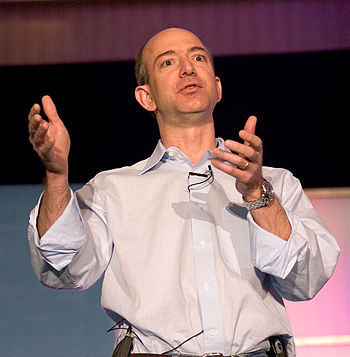 Amazon founder Jeff Bezos starts his High Order Bit presentation. (Photo credit: Wikipedia)We all know what Act One was all about and it started with a bang: on a November day like any other in 2007, the Kindle was launched by Jeff Bezos, Amazon's brilliant founder and within five hours it had sold out. The whole world of e-reading was changed forever. Years later, Bezos admitted in an interview that he was surprised at how fast the Kindle sold in its first two holiday seasons.
Amazon founder Jeff Bezos starts his High Order Bit presentation. (Photo credit: Wikipedia)We all know what Act One was all about and it started with a bang: on a November day like any other in 2007, the Kindle was launched by Jeff Bezos, Amazon's brilliant founder and within five hours it had sold out. The whole world of e-reading was changed forever. Years later, Bezos admitted in an interview that he was surprised at how fast the Kindle sold in its first two holiday seasons.We all know what Act II was like, a wild, exciting ride starting with several unknown writers achieving sudden stardom: Amanda Hocking, Bella Andre, Hugh Howey . But there were many many others, often mid list authors led by Jo Konrath, re-publishing their back list and finding success. The Indie revolution was born, drawing in hordes of aspiring writers and mid-list authors alike.
Traditional publishers looked on, initially dazed. But they too caught on. They used to sell the digital version of their new titles after the hardcover and even after the paperback one and at a huge mark-up compared to indie prices, making it close to or equivalent to the cost of the paperback.
No more, they learned their lesson. Now, they put out e-books at the same time or soon after the paper version - paperbacks no longer enter into the equation. And they've brought down the price in most cases, to around $10-12 from the $18 or more of a few years ago.
The digital revolution has been good to readers, prices are down, especially for Indie books ($2.99 to $3.99 - the 99 cents craze is over, it is reserved for first books in series). But they are also down for books from major traditionally published writers.
But has the digital revolution been good for the publishing industry? Many are saying it's dying while novelists who have left behind the publishing industry are doing fine, better than ever before, as eloquently argued in a recent Business Insider article (incidentally, if you scroll down to the bottom of the page, you'll discover that Jeff Bezos is an investor in Business Insider through his personal investment company Bezos Expeditions).
No question about it, the stigma associated with self-publishing is gone. Reportedly, "many" writers make a living from their writing alone, something that was impossible before.
So are the doomsayers wrong and everything is rosy?
No, the fact is that the future is not looking rosy at all, not for writers and not for publishers. And exactly how many writers are able to make a living from their writing alone is not known, but I shall get back to that in a minute.
First, the facts we are facing and that I want to share with you here.
 Computer lab on the University of Warwick campus. (Photo credit: Wikipedia)We are definitely into Act III of the digital revolution and the publishing industry is in for another paradigm change.
Computer lab on the University of Warwick campus. (Photo credit: Wikipedia)We are definitely into Act III of the digital revolution and the publishing industry is in for another paradigm change.There are several reasons for that.
1. E-reader sales are not what they used to be, sales of e-books are flattening out, the industry is maturing and finding a balance between digital and paper: a lot of people prefer to read on paper and those paper addicts are not about to disappear; personally, I prefer paper for my non-fiction and for "serious" literature, whether it is Khaled Hosseini's latest novel or poetry. I'm not the only one. It seems (see article below) that students don't really like e-readers and prefer to study in "real" paper books. Who would ever have thought that millennials (and younger) were faithful to paper and shied away from e-reading?
The Kindle is great when you go on a trip or wait at the dentist's. In fact, how e-readers are used determines what sort of book will be digitally successful. And it is the sort that provides light entertainment while you wait or travel, with stories that can be interrupted at any moment, which explains why certain genres work so well in the Kindle Store (romance, thrillers) and others do not.
A warning to newbies contemplating self-publishing: if you don't write thrillers or romance (or both), your chances of success are very, very slim.
2. Digital websites cannot handle the tsunami of published books, soon some 4 million books will be in the Kindle Store alone (I recently blogged about this several times, here and here). Visibility is made to depend on sales rankings, that is the Amazon model.
The model is insidious: it feeds on itself, it only rewards who sells already, who is known on the Net for one reason or another, a celeb, a traditionally published author with a big following like Paulo Coelho, with almost 3 million followers on Twitter:

Result?
Discoverability (what an awful word!) has become a real problem for indies and traditional publishers alike. You self-publish your masterpiece and it sinks to the bottom unless you engage in aggressive marketing tactics - in this respect, if you're not afraid to jump in, indie author David Gaughran has provided an invaluable guide, Let's Get Visible: How to Get Noticed and Sell More Books, I highly recommend it.
But aggressive marketing is only a palliative and most writers can't sustain the effort, every day, every year, to promote their books, with no end in sight - and keep writing as well.
Even traditional publishers can't. They've neatly solved the problem with a clever strategy consisting in publishing only the work of celebrities and proven best-selling authors and largely letting go of all the others - whether mid-list and niche authors or newbies. Perhaps that strategy is not followed by every publisher, and small publishing houses often are more daring and will sustain a new author, but overall, there is little doubt that the publishing industry has turned more conservative than ever and more unwilling to try out new writers.
3. The average income of professional writers is decreasing dangerously. With the Internet love for free products and the (annoying) habit of not paying contributors, more and more sites do not pay or only pay a pittance.
Recently, a survey reporting on writers' income in the UK bode ill (see here): almost 2,500 working writers were surveyed – the first comprehensive study of author earnings in the UK since 2005 – and it showed that the median income of the professional author in 2013 was just £11,000, a drop of 29% since 2005 (data adjusted for inflation). Compare that to the minimum income standard in the UK: £16,850. Yes, much lower!
But the picture is even worse: in 2013, just 11.5% of professional authors earned their incomes solely from writing. In 2005, 40% of them did.
In short, in the UK the vast majority of writers don't earn a decent income from their writing. It is true that the digital revolution has come late to the UK, but it has been in full swing for the past two years, at levels approaching that of the US, and surely, if it was going to be beneficial for writers, something positive change should have shown up in the statistics - instead, we get a 29% drop.
Do you believe things are different in the US? Unfortunately, we don't have comprehensive data for the US - it's anecdotal and incomplete. The closest we get are analyses like the "7 k report", interesting but not convincing. The problem is that distributors like Amazon and Barnes and Noble don’t share their e-book sales figures. Until someone does an independent, comprehensive survey, we shall never know for sure. All we know is that e-book dominance in the top 100 best-selling genre books (meaning mystery/thriller, romance, science fiction and fantasy) is "extreme", that the Big Five account for approximately a good third of everything digitally published, and that indies and small presses take the biggest slice of the cake. But when it comes to gross dollar sales, the Big Five take half the pie.
The picture changes when looking at the revenue from the author's perspective. According to that "7k report", Indie authors are earning nearly half the total author revenue from genre fiction sales on Amazon.
Great! But what is coming to the median (or average) author? In other words, how is that revenue distributed? If it goes to the top 1,000 indie authors (a likely hypothesis, given the Amazon environment that awards visibility only to the top 100 sellers), then the rest gets peanuts. And this leaves out anyone who does not write genre (and there are a lot of those too).
So, for the moment, we don't know the situation in the US but we should keep in mind that chances are it is similar to the UK, the market historically closest to the US.
4. Publishing is shedding its traditional role. Traditional publishers have even launched aggressive and highly innovative e-publishing ventures, riding the digital wave, betting on new forms, like novellas and serialized novels (published in separate episodes).
Byliner.com is a good example of this phenomena. It describes itself as a "boutique publisher" who works directly with the "world's best writers", including Margaret Atwood, Amy Tan, Jon Krakauer, Ann Patchett, Chuck Palahniuk, Alexandra Fuller etc etc. It specializes in publishing short pieces at a very low cost ($2.99), thus coming in direct competition with the prices practiced by indies. This is a game-changer for indies: for an indie who is unknown, the only way to stand out and sell is to practice super-low prices. But if big names start to compete at the lower end of the price range, there is little chance for indies to survive...
 Also, some of this short fiction by "top authors" that includes so-called "best sellers" like Margaret Atwood's "Positron" (in 4 episodes, I just checked out the first) can be very disappointing. I love Margaret Atwood, but that Positron story is just not one of her best books, the premise is intriguing but soon becomes highly implausible - and no matter how professional the writing, if the story is implausible, it is finished for me.
Also, some of this short fiction by "top authors" that includes so-called "best sellers" like Margaret Atwood's "Positron" (in 4 episodes, I just checked out the first) can be very disappointing. I love Margaret Atwood, but that Positron story is just not one of her best books, the premise is intriguing but soon becomes highly implausible - and no matter how professional the writing, if the story is implausible, it is finished for me.In short, it is hard to dismiss the impression that everybody and his uncle is jumping on the e-publishing bandwagon with anything that can be read, regardless of whether it is good or bad.
Perhaps this onslaught of mediocre writing is not so surprising since there are no gatekeepers in the digital world. Amazon has instituted customer reviews but, as I have blogged several times, customer reviews are not the equivalent of a literary critic's analysis. And the digital world is rife with willing bloggers reviewing books - that's a welcome aspect of the Net and it is still evolving, some bloggers someday may achieve the status of quality gatekeepers, but that hasn't happened yet. And there are also dedicated sites, for example Kirkus that, thanks to its historic name (though it is now a different company), is able to sell reviews to Indies at surprisingly high prices - a mere paragraph of review for some $400. For many indies, that's a serious investment.
But all this does not amount to serious gate-keeping. If I insist on this gate-keeping argument, it's because it's the only way to crack the visibility problem. Probably Amazon is best placed on the Net to pull it off, if only it would set its mind to do it.
Amazon already has a select group of reviewers in the Vine Program reviewing every sort of product on sale. All it has to do is pick out those who like to review books and do it best. The next step is to set up some guidelines for review, so that the work is done professionally, covering systematically all major aspects from characters to plot development and the writer's "voice" etc. And finally, tweak the book page layout so that vine reviews receive pride of place compared to customer reviews.
But for the time being, there is no "gate-keeping" on the Net. Thus chances for a good book to rise to the surface and become visible are wholly dependent on luck. What this system does for our culture overall, I don't like to think.
How is Act III going to play out? What does the future hold?
In this dismal setting, as we all know, a fight has recently developed between two giant players: Amazon, the biggest e-book distributor (and incidentally a publisher in its own right) and Hachette, one of the Big Five Publishers.
It's an epic fight, though Amazon, in some ways, is a Goliath compared to Hachette: its book business is a small part of the company that sells everything like an online Walmart while for Hachette it is the whole company. So expect Amazon to be more resilient than Hachette and able to last longer in this protracted fight. We're headed now for the last quarter of the year, the holidays book sale season is looming up but the fight, started some six months ago, is not over.
Nobody really knows what the fight is about. It would appear, from what one reads in the press and in the various letters exchanged between the concerned parties, from Authors United to the message from the Amazon Team (termed Readers United), that Amazon is trying to convince Hachette that by lowering its prices it would achieve more sales. Authors whose sales got hurt hope they can move the Amazon board of directors, and maybe they can. Amazon's reputation could get hurt. As the New Yorker noted, "The signatories of the Authors United letter include some of the best-selling writers in the world (Elizabeth Gilbert, John Grisham, Stephen King) and some of the most celebrated (Robert A. Caro, Michael Chabon, Edwidge Danticat)."
Still, on the face of it, Amazon's argument makes sense. Indies have sold plenty of books and survived thanks to low prices...and Amazon's generosity, allowing them a royalty rate several times what traditional publishers give their authors.
On the Kindle, no doubt about it, the evidence is in: low prices sell books. Price elasticity is not a mirage but a reality.
It is Amazon's model vs. the traditional publisher's model.
But is that what they are really fighting about? I suspect something else is afoot though I have nothing to prove it, nothing except economic logic. Starting in 2007, Amazon generously gave out 70% royalty rates to anyone (indie or publisher) who uploaded their books in the Kindle Store provided the prices were set between $2.99 and $9.99. Why this sudden generosity? Because when Amazon launched the Kindle, the store needed to be filled up with books. The goal was to create a low-price environment that was enticing to readers.
That is Amazon's preferred price range and one that Hachette is not accepting.
But what if the problem between Amazon and Hachette had little to do with the price level but a lot with the 70% royalty rate? Amazon needs to show a profit, Wall Street has recently grown impatient with Amazon's strategy of taking no profit because of its price-cutting aimed at gaining market shares. At 70% (which means Amazon takes in only 30%) it is probably not making money. As a book distributor, its share is at a historical low for the industry. I am guessing that for Amazon a better rate would be 50%. And to make it work for both sides, for Amazon and Hachette, book prices need to come down so that greater volumes are sold, and in the end, more money is raked in for both.
Amazon has argued persuasively that books do not compete against other books in today's entertainment world: they compete with TV series, video-games, movies. So books to compete in that environment need to be priced like a cup of coffee.
I'm afraid Amazon is right in this and that in the end, it will win out. Hachette won't lose if it lowers its prices: all of a sudden, its prized authors will sell at prices so low that no indie can resist - unless, the indie is one with a big following before she ever attempted self-publishing, or an indie that has made a name for herself over the past three years. Anyone who hasn't "made" it by now, cannot expect to make it in future, unless, by a quirk of fate, she manages to stay high in the Amazon sales rankings, keeping her book visible.
I know, this is a depressing analysis for indies. And, like Queen Victoria, I am not amused. But I prefer to face reality than to continue and pretend like Voltaire's Candide, that "all is well in the best of worlds".
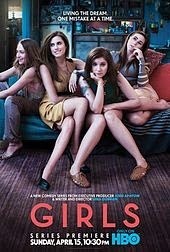 Promotional poster for the series premiere .
Promotional poster for the series premiere . With the rise of TV series and video games, fewer and fewer people are reading for entertainment. Publishing, if it is to survive, needs to adjust. And in some perverse ways, it already is.
Consider Lena Dunham's success as creator and actress in "Girls", a universally acclaimed TV series that started in 2012, as an HBO show. I just read in the New York Times that she is coming out with her own book based on the series. As the NYT says,
"Why would someone working in high-end cable TV, which is arguably today’s most vital entertainment medium, extend her reach into one that’s ostensibly dying?"
"Ostensibly dying?" Ouch, that hurts (especially if like me, you love books and are fascinated by publishing).
But it's a good question, why indeed? After all, in the past, the traditional career path was the other way around: you wrote a book, you ended in Hollywood if you were lucky. As noted in the NYT, "After all, the trajectory of female essayists and cultural critics (see Ephron, Joan Didion, even Dorothy Parker) has traditionally been to parlay their literary bona fides into more lucrative work in Hollywood. Dunham, though she will continue to make television and films, has done things in reverse."
I don't know why she has done "things in reverse", but I take it as a sign of the times. Publishing has become a niche activity in the broader entertainment world, a cultural thing, a little extra you give to yourself, a pat on the back after you've succeeded at everything else that matters... And she's only twenty six. Congrats, Lena!
Related articles
 Hugh Howey, Jennifer Weiner Strike Back at an Industry They've Left Behind
Hugh Howey, Jennifer Weiner Strike Back at an Industry They've Left Behind
 The Business Rusch: Anti-Published
The Business Rusch: Anti-Published
 Students Still Resisting E-Textbooks, Data Shows
Students Still Resisting E-Textbooks, Data Shows








Published on September 18, 2014 09:07

